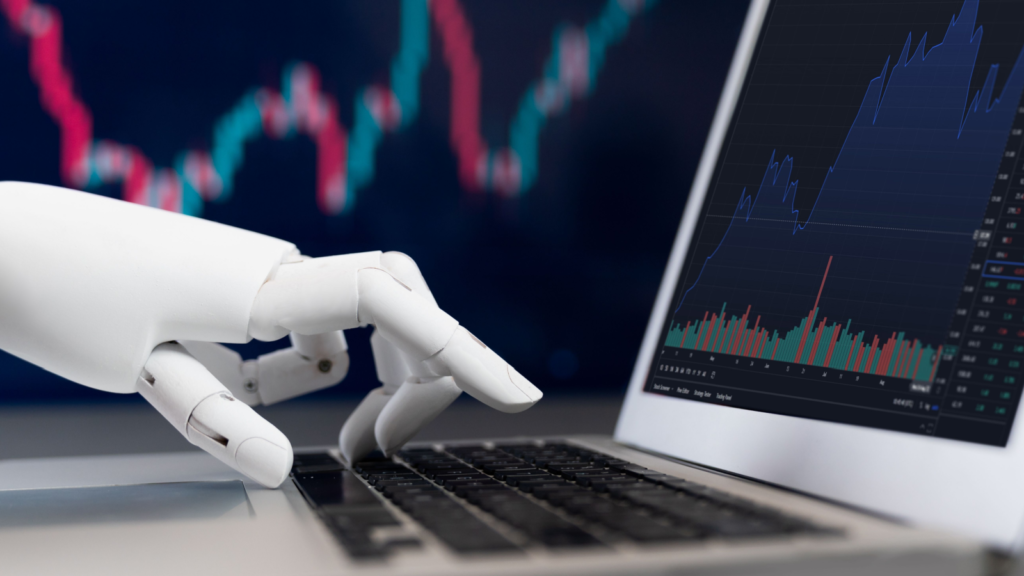Source: Ole Productions / Shutterstock.com
AI is impacting the manufacturing sector significantly. It is increasingly being applied to task automation and other efficiency-enhancing efforts. While these are positive things, they also promise to eliminate jobs in the manufacturing sector and beyond. At the same time, these job-killing AI stocks have the potential to create fortunes for investors.
It's not inconceivable that AI-powered humanoid robots could soon populate factory floors. This will create a paradox whereby some suffer job losses while others benefit from improved income and efficiency.
While you, I, and many others sympathize with those who will lose their jobs, we are ultimately powerless to stop this trend. Therefore, the best course of action is to understand how to take advantage of the trend. Investing in stocks that will lead to job cuts through AI is one of the best ways to do this.
Nvidia (NVDA)
Source: Evolf / Shutterstock.com
Nvidia (Nasdaq:NVDA) is one of the best stock investments for all things AI. This includes resulting job losses and efficiency gains that ultimately create value.
Nvidia's graphical processing units (GPUs) are the most in-demand chips for almost everything AI-related. The best way to understand this is to simply note that the majority of these chips are being sold for end use in data centers. Of the company's $26 billion in first-quarter revenue, $22.6 billion came from data center sales.
What this really means is that Nvidia is at the heart of the massive hyperscale algorithms that are training the AI as a whole. Those algorithms are being applied to all kinds of things, including automation tasks in the manufacturing sector.
In short, Nvidia's GPUs are creating artificial intelligence that will be applied to the production of ubiquitous floor bots that automate human tasks. As it sometimes seems, it can make investors lucky.
Rockwell Automation (ROK)
Source: JHVEPhoto / Shutterstock
Rockwell Automation (NYSE:ROK) is one of the most popular industrial automation stocks. Its shares have considerable upside potential.
This company is a particularly interesting AI firm with the statements it has. Rockwell Automation says its focus is on augmenting, not replacing, AI. The company is using artificial intelligence in tasks like predictive maintenance, quality control and process automation. Again, the whole narrative revolves around the idea that AI will augment the work of humans and not replace those jobs.
Call me a skeptic, but anything the company does will require more expertise. While some workers will undoubtedly be able to acquire and acquire the technical and analytical skills that AI will bring to automation, others will not.
As hard as this is to accept, the least qualified workers will be left behind. I'm not trying to say that investors should avoid Rockwell Automation as a result. Instead, I'm just trying to be more realistic about what will happen. Rockwell Automation will cost some people their jobs but will likely create value in the process, making its stock more valuable.
Tesla (TSLA)
Source: Vitaliy Karimov / Shutterstock.com
Tesla (Nasdaq:TSLA) is one of the most visible AI stocks related to job destruction. Many readers will already be familiar with the company's Tesla Bot development. For those who aren't, Tesla is developing a humanoid robot, the second generation of which recently debuted at the 2024 World Artificial Intelligence Conference in Shanghai.
Readers who are more interested in this bot should refer to this article. The second generation Tesla Bot has a 30% faster running speed and a 10kg weight reduction. Some analysts believe that this prototype will soon be able to replace human labor in many fields.
This raises the question of how Teslabot will be integrated into the company's operations. Will Teslabot be incorporated into the electric vehicle manufacturer's operations or spun off as a standalone firm? No one knows the answer, so investing investors should assume TSLA shares are the correct answer.
At the date of publication, Alex Sirois had no position (directly or indirectly) in the securities mentioned in this article. The opinions expressed in this article are those of the author, subject to InvestorPlace.com. Publication Guidelines.
At the date of publication, the responsible editor did not have (directly or indirectly) any position in the securities referred to in this Article.
